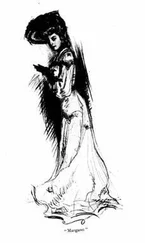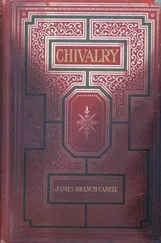James Cabell - The Certain Hour. Dizain des Poëtes
Здесь есть возможность читать онлайн «James Cabell - The Certain Hour. Dizain des Poëtes» весь текст электронной книги совершенно бесплатно (целиком полную версию без сокращений). В некоторых случаях можно слушать аудио, скачать через торрент в формате fb2 и присутствует краткое содержание. Жанр: Современная проза, на английском языке. Описание произведения, (предисловие) а так же отзывы посетителей доступны на портале библиотеки ЛибКат.
- Название:The Certain Hour. Dizain des Poëtes
- Автор:
- Жанр:
- Год:неизвестен
- ISBN:нет данных
- Рейтинг книги:4 / 5. Голосов: 1
-
Избранное:Добавить в избранное
- Отзывы:
-
Ваша оценка:
- 80
- 1
- 2
- 3
- 4
- 5
The Certain Hour. Dizain des Poëtes: краткое содержание, описание и аннотация
Предлагаем к чтению аннотацию, описание, краткое содержание или предисловие (зависит от того, что написал сам автор книги «The Certain Hour. Dizain des Poëtes»). Если вы не нашли необходимую информацию о книге — напишите в комментариях, мы постараемся отыскать её.
The Certain Hour. Dizain des Poëtes — читать онлайн бесплатно полную книгу (весь текст) целиком
Ниже представлен текст книги, разбитый по страницам. Система сохранения места последней прочитанной страницы, позволяет с удобством читать онлайн бесплатно книгу «The Certain Hour. Dizain des Poëtes», без необходимости каждый раз заново искать на чём Вы остановились. Поставьте закладку, и сможете в любой момент перейти на страницу, на которой закончили чтение.
Интервал:
Закладка:
The tutor, it appeared, preferred to talk with the former Chancellor of Saxe-Kesselberg in the middle of an open field. The time was afternoon, the season September, and the west was vaingloriously justifying the younger man's analogy of a gigantic Spanish omelette. Meanwhile, the younger man declaimed in a high-pitched pleasant voice, wherein there was, as always, the elusive suggestion of a stutter.
"I repeat to you," the tutor observed, "that no consideration will ever make a grand-duke of me excepting over my dead body. Why don't you recommend some not quite obsolete vocation, such as making papyrus, or writing an interesting novel, or teaching people how to dance a saraband? For after all, what is a monarch nowadays-oh, even a monarch of the first class?" he argued, with what came near being a squeak of indignation. "The poor man is a rather pitiable and perfectly useless relic of barbarism, now that 1789 has opened our eyes; and his main business in life is to ride in open carriages and bow to an applauding public who are applauding at so much per head. He must expect to be aspersed with calumny, and once in a while with bullets. He may at the utmost aspire to introduce an innovation in evening dress,-the Prince Regent, for instance, has invented a really very creditable shoe-buckle. Tradition obligates him to devote his unofficial hours to sheer depravity-"
Paul Vanderhoffen paused to meditate.
"Why, there you are! another obstacle! I have in an inquiring spirit and without prejudice sampled all the Seven Deadly Sins, and the common increment was an inability to enjoy my breakfast. A grand-duke I take it, if he have any sense of the responsibilities of his position, will piously remember the adage about the voice of the people and hasten to be steeped in vice-and thus conform to every popular notion concerning a grand-duke. Why, common intelligence demands that a grand-duke should brazenly misbehave himself upon the more conspicuous high-places of Chemosh! and personally, I have no talents such as would qualify me for a life of cynical and brutal immorality. I lack the necessary aptitude, I would not ever afford any spicy gossip concerning the Duke of Saxe-Kesselberg, and the editors of the society papers would unanimously conspire to dethrone me-"
Thus he argued, with his high-pitched pleasant voice, wherein there was, as always, the elusive suggestion of a stutter. And here the other interrupted.
"There is no need of names, your highness." Georges Desmarets was diminutive, black-haired and corpulent. He was of dapper appearance, point-device in everything, and he reminded you of a perky robin.
The tutor flung out an "Ouf! I must recall to you that, thank heaven, I am not anybody's highness any longer. I am Paul Vanderhoffen."
"He says that he is not Prince Fribble!"-the little man addressed the zenith-"as if any other person ever succeeded in talking a half-hour without being betrayed into at least one sensible remark. Oh, how do you manage without fail to be so consistently and stupendously idiotic?"
"It is, like all other desirable traits, either innate or else just unattainable," the other answered. "I am so hopelessly light-minded that I cannot refrain from being rational even in matters which concern me personally-and this, of course, no normal being ever thinks of doing. I really cannot help it."
The Frenchman groaned whole-heartedly.
"But we were speaking-well, of foreign countries. Now, Paul Vanderhoffen has read that in one of these countries there was once a prince who very narrowly escaped figuring as a self-conscious absurdity, as an anachronism, as a life-long prisoner of etiquette. However, with the assistance of his cousin-who, incidentally, was also his heir-the prince most opportunely died. Oh, pedant that you are! in any event he was interred. And so, the prince was gathered to his fathers, and his cousin Augustus reigned in his stead. Until a certain politician who had been privy to this pious fraud-" The tutor shrugged. "How can I word it without seeming hypercritical?"
Georges Desmarets stretched out appealing hands. "But, I protest, it was the narrow-mindedness of that pernicious prig, your cousin-who firmly believes himself to be an improved and augmented edition of the Four Evangelists-"
"Well, in any event, the proverb was attested that birds of a feather make strange bedfellows. There was a dispute concerning some petit larceny-some slight discrepancy, we will imagine, since all this is pure romance, in the politician's accounts-"
"Now you belie me-" said the black-haired man, and warmly.
"Oh, Desmarets, you are as vain as ever! Let us say, then, of grand larceny. In any event, the politician was dismissed. And what, my dears, do you suppose this bold and bad and unprincipled Machiavelli went and did? Why, he made straight for the father of the princess the usurping duke was going to marry, and surprised everybody by showing that, at a pinch, even this Guy Fawkes-who was stuffed with all manner of guile and wickedness where youthful patriotism would ordinarily incline to straw-was capable of telling the truth. And so the father broke off the match. And the enamored, if usurping, duke wept bitterly and tore his hair to such an extent he totally destroyed his best toupet. And privily the Guy Fawkes came into the presence of the exiled duke and prated of a restoration to ancestral dignities. And he was spurned by a certain highly intelligent person who considered it both tedious and ridiculous to play at being emperor of a backyard. And then-I really don't recall what happened. But there was a general and unqualified deuce to pay with no pitch at a really satisfying temperature."
The stouter man said quietly: "It is a thrilling tale which you narrate. Only, I do recall what happened then. The usurping duke was very much in earnest, desirous of retaining his little kingdom, and particularly desirous of the woman whom he loved. In consequence, he had Monsieur the Runaway obliterated while the latter was talking nonsense-"
The tutor's brows had mounted.
"I scorn to think it even of anybody who is controlled in every action by a sense of duty," Georges Desmarets explained, "that Duke Augustus would cause you to be murdered in your sleep."
"A hit!" The younger man unsmilingly gesticulated like one who has been touched in sword-play. "Behold now, as the populace in their blunt way would phrase it, I am squelched."
"And so the usurping duke was married and lived happily ever afterward." Georges Desmarets continued: "I repeat to you there is only the choice between declaring yourself and being-we will say, removed. Your cousin is deeply in love with the Princess Sophia, and thanks to me, has now no chance of marrying her until his title has been secured by your-removal. Do not deceive yourself. High interests are involved. You are the grain of sand between big wheels. I iterate that the footpad who attacked you last night was merely a prologue. I happen to know your cousin has entrusted the affair to Heinrich Obendorf, his foster-brother, who, as you will remember, is not particularly squeamish."
Paul Vanderhoffen thought a while. "Desmarets," he said at last, "it is no use. I scorn your pribbles and your prabbles. I bargained with Augustus. I traded a duchy for my personal liberty. Frankly, I would be sorry to connect a sharer of my blood with the assault of yesterday. To be unpardonably candid, I have not ever found that your assertion of an event quite proved it had gone through the formality of occurring. And so I shall hold to my bargain."
"The night brings counsel," Desmarets returned. "It hardly needs a night, I think, to demonstrate that all I say is true."
And so they parted.
Having thus dismissed such trifles as statecraft and the well-being of empires, Paul Vanderhoffen turned toward consideration of the one really serious subject in the universe, which was of course the bright, miraculous and incredible perfection of Mildred Claridge.
Читать дальшеИнтервал:
Закладка:
Похожие книги на «The Certain Hour. Dizain des Poëtes»
Представляем Вашему вниманию похожие книги на «The Certain Hour. Dizain des Poëtes» списком для выбора. Мы отобрали схожую по названию и смыслу литературу в надежде предоставить читателям больше вариантов отыскать новые, интересные, ещё непрочитанные произведения.
Обсуждение, отзывы о книге «The Certain Hour. Dizain des Poëtes» и просто собственные мнения читателей. Оставьте ваши комментарии, напишите, что Вы думаете о произведении, его смысле или главных героях. Укажите что конкретно понравилось, а что нет, и почему Вы так считаете.



